Graduate Student Teaching Assistants

Rachel Barrales is a Master of Environmental Management student at the Nicholas School of the Environment, specializing in Environmental Economics and Policy. Rachel received her Bachelor of Science in Ecosystem Science and Policy from the University of Miami. Her interests include furthering climate change adaptation for coastal communities, especially in Latin America, and in advancing equitable carbon markets and Article 6 implementation. Prior to Duke, Rachel supported the development of a Climate Change Action Plan for a California water district, led natural resource conservation projects as a Peace Corps Volunteer in Mexico, and reviewed greenhouse gas emission reduction and sustainable development projects as a Program Officer at Verra.

Dhruv Jhaveri is a Master of Environmental Management student at the Nicholas School of the Environment, concentrating in Energy and Environment. This summer, he was selected as an EDF Climate Corps Fellow and was working with Amazon to help them identify, evaluate, and reduce Scope 1 and 2 emissions, perform an energy audit, and develop a decarbonization strategy for Amazon to be net-zero carbon by 2040. Prior to Duke, he worked with Bharat Petroleum Corp. Ltd., a national oil and gas company in India, where he was primarily looking after the supply chain of petroleum products throughout the nation. He has also worked with the Council on Energy Environment and Water (CEEW), where he assisted the Ministry of New and Renewable Energy, Government of India, in developing a national hydrogen energy roadmap. Dhruv is an energy enthusiast and loves talking about all things energy – technologies, policies, markets, finance, law, etc. He holds an undergraduate degree in Chemical Engineering from the Institute of Chemical Technology, India.
Student Participants
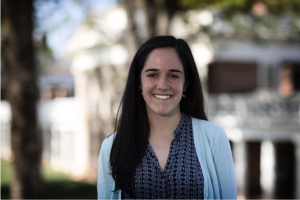
Megan Mason Dister is a third-year law student at Duke pursuing a career in public interest environmental law. She grew up in Norfolk, Virginia and graduated with a degree in Global Studies in Environments and Sustainability from the University of Virginia in 2018. Before heading to law school, she received a Fulbright to Kenya and taught English at a high school in Nairobi. Then she served as an AmeriCorps on the Monongahela National Forest in West Virginia. During her summers in law school she worked at the Department of Justice in the Wildlife and Marine Resources Section and the Conservation Law Foundation.
Ana G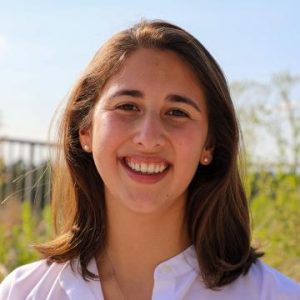 argollois in her second year of the Master of Environmental Management, concentrating on Environmental Economics and Policy. Ana holds aBSc. in Global Resources, with a specialization in urban sustainability, from The University of British Columbia. After graduating, she worked in Pronatura México as project manager of the largest forestry carbon project in the country. She worked with World Resources Institute and USAID Mexico, among others, to generate carbon credits through community-based approaches. Last summer, she worked as a Summer Fellow in the American Cities Climate Challenge at Natural Resources Defense Council, supporting the implementation of climate mitigation initiatives in cities around the country.
argollois in her second year of the Master of Environmental Management, concentrating on Environmental Economics and Policy. Ana holds aBSc. in Global Resources, with a specialization in urban sustainability, from The University of British Columbia. After graduating, she worked in Pronatura México as project manager of the largest forestry carbon project in the country. She worked with World Resources Institute and USAID Mexico, among others, to generate carbon credits through community-based approaches. Last summer, she worked as a Summer Fellow in the American Cities Climate Challenge at Natural Resources Defense Council, supporting the implementation of climate mitigation initiatives in cities around the country.

Yori Hook is a Master of Public Policy student concentrating in Energy and Environmental Policy. Yori received her undergraduate degree from Willamette University where she majored in Politics with minors in Environmental Science and Economics. Her interests focus on increasing community resilience to natural hazards, including flooding, drought, heat, fire, and coastal inundation. Prior to Duke, Yori coordinated federal funding at the National Fish and Wildlife Foundation, supported ocean and fisheries research at the Center for Strategic and International Studies, and worked in the Alaskan salmon fishing industry as a quality control technician. Most recently, Yori interned at the White House Council on Environmental Quality where she supported work related to climate and infrastructure resilience.
Shih-Hsuan Liao (Ina) 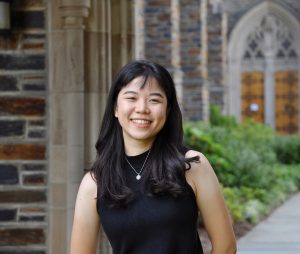 is a first-year Master of Environmental Management candidate at Nicholas School of the Environment, concentrating in Energy and Environment. Ina holds a Bachelor of Arts in Public Administration and Policy from National Taipei University. Her research interest focus on how policies facilitate renewable energy integration and reduce the adverse effects of energy transitions. Before coming to Duke, she worked as an NDC working group member at Taiwan Youth Climate Coalition, accessing Taiwan’s greenhouse gas reduction policies. She was also a research assistant at National Taipei University, working on households’ energy-saving behaviors research.
is a first-year Master of Environmental Management candidate at Nicholas School of the Environment, concentrating in Energy and Environment. Ina holds a Bachelor of Arts in Public Administration and Policy from National Taipei University. Her research interest focus on how policies facilitate renewable energy integration and reduce the adverse effects of energy transitions. Before coming to Duke, she worked as an NDC working group member at Taiwan Youth Climate Coalition, accessing Taiwan’s greenhouse gas reduction policies. She was also a research assistant at National Taipei University, working on households’ energy-saving behaviors research.
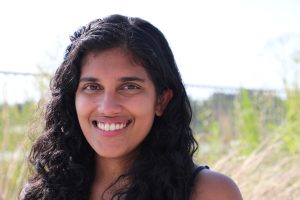
Sandunie Liyanagamage is in her second year of the Master of Environmental Management program at the Nicholas School of the Environment and is concentrating in sustainable business practices. Originally from Sri Lanka, Sandunie holds a Bachelor of Science in Chemical Engineering from Georgia Institute of Technology along with a Certificate in Corporate Social Responsibility from University of Colorado – Boulder. She has 8 years of environmental consulting experience and her recent projects include GHG verifications, sustainability reporting, and Scope 3 quantifications. This summer, Sandunie supported EDF’s Oceans Program Initiative by conducting an assessment of socioeconomic impacts resulting from blue carbon projects. She hopes to work at the intersection of ocean sustainability and business, specifically in the tourism sector. Sandunie is an advocate of collaborations and partnerships that advance equitable solutions for underrepresented communities directly impacted by climate change.

Andi Mujollari holds a Bachelor degree in Environmental Engineering and a Master of Science degree in Water and Wastewater Treatment and Management, at Polytechnic University of Tirana, Faculty of Civil Engineering. During his academic years, he has been part of two student exchange programs at Riga Technical University & AGH University of Science and Technology Krakow. Since 2012, Andi has beenengaged as a volunteer at the Albanian Red Cross, and in 2020 he started working for the International Federation of Red Cross as an Administration Officer. From March 2021, he holds the position of program coordinator at Albanian Red Cross, where he is responsible for the implementation of the activities in the framework of “Better Shelter” project. Andi is also the co-founder of a community structure called Environmental Council of Tirana, which undertakes environmental initiatives of local public interest in order to solve common problems affecting the city, promoting a healthy environment and quality of life. For years, he has been engaged and contributed to projects and initiatives focusing on the environment, floods, and renewable energy, collaborating with the organizations GIZAlbania, OSCE, REC, National Agency for Territorial Planning & National Youth Congress of Albania. Andi has always been passionate about sustainable development and engineering sciences – in particular, from the sense of humanism to human beings and the sense of community.
Jide  is a Graduate Research Assistant at Duke University, James E. Rogers Energy Access Project. He supports the Institute in the development of transformative financial solutions and the effectiveness of public finance and policy in driving investment. Jide previously worked as a Summer Associate at Climate Policy Initiative in Washington DC and a Regulatory Policy Analyst at Coronation Merchant Bank, Lagos. He holds a bachelor’s degree in Economics from Obafemi Awolowo University, Nigeria, and currently pursuing a master’s degree in Public Policy at Duke University. Jide is passionate about development and has been involved in humanitarian actions in Nigeria, Coted-Ivoire, Switzerland, and the United States.
is a Graduate Research Assistant at Duke University, James E. Rogers Energy Access Project. He supports the Institute in the development of transformative financial solutions and the effectiveness of public finance and policy in driving investment. Jide previously worked as a Summer Associate at Climate Policy Initiative in Washington DC and a Regulatory Policy Analyst at Coronation Merchant Bank, Lagos. He holds a bachelor’s degree in Economics from Obafemi Awolowo University, Nigeria, and currently pursuing a master’s degree in Public Policy at Duke University. Jide is passionate about development and has been involved in humanitarian actions in Nigeria, Coted-Ivoire, Switzerland, and the United States.

Taalin RaoShah is an undergraduate senior majoring in Public Policy, with minors in Environmental Sciences & Policy and Psychology. Through work with city councilors, the Mayor’s Youth Council, as well as the Massachusetts Sierra Club, he has gained experience working at the intersection of policy, climate change, and justice in his hometown, Boston. His Senior Thesis research focuses on how Boston is pioneering an energy aggregation model called “Community Choice Electricity.” After spending the summer in Paraguay, he has also become interested in how developing countries can implement clean energy solutions that are tailored to the reality of the region. Looking forward, Taalin hopes to learn more about innovative climate solutions and global climate change negotiations through this practicum, which will help him as he pursues a career at the intersection of policy, sustainability, and equity.
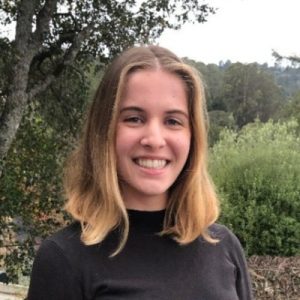 Isabel Rewick is a senior undergraduate student at Duke University majoring in Public Policy with minors in Environmental Science and Policy and French Studies. Her interests are climate justice and international policy. Outside of the classroom, Isabel is a member of the Duke Undergraduate Energy Club, where she served as a Project Manager in partnership with Fervo Energy to develop policy memos on geothermal energy. She spent this past summer as a Policy Intern with the New York League of Conservation Voters researching national and international policy efforts to decarbonize and retrofit affordable housing. She will continue to conduct research this year as a member of the Bass Connections project: Collecting Oral Histories of Environmental Racism and Injustice in the American South. Isabel hopes to learn more about international policy design and the role of non-state actors through this practicum.
Isabel Rewick is a senior undergraduate student at Duke University majoring in Public Policy with minors in Environmental Science and Policy and French Studies. Her interests are climate justice and international policy. Outside of the classroom, Isabel is a member of the Duke Undergraduate Energy Club, where she served as a Project Manager in partnership with Fervo Energy to develop policy memos on geothermal energy. She spent this past summer as a Policy Intern with the New York League of Conservation Voters researching national and international policy efforts to decarbonize and retrofit affordable housing. She will continue to conduct research this year as a member of the Bass Connections project: Collecting Oral Histories of Environmental Racism and Injustice in the American South. Isabel hopes to learn more about international policy design and the role of non-state actors through this practicum.

Fabian Schmid is a Master student in Economics. He completed his B.Sc. in Political Science and Economics at the University of Potsdam in Germany and holds a B.A. in Business Administration from DHBW Heidenheim. Back in Germany, he worked as a research assistant with a focus on international trade and environmental economics. An internship at the United Nations provided him with experience in the functioning of an international organization. His research interests lie in the areas of environmental economics, economic inequality, and how to achieve a just and efficient transformation to a carbon-neutral economy. He hopes that this course strengthens his knowledge of climate-related economic policy on the international level.
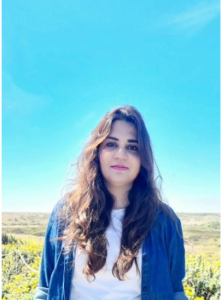 Arfa Waheed is a second-year Master of Environmental Management student concentrating in Environmental Economics and Policy. Arfa holds a Master’s degree in Chemistry and has been working as a Civil Servant in Pakistan in the field of Urban Municipal and Land Administration, managing different local government projects. Her interest shifted to urban environmental issues and sustainable urban development in recent years. She plans to study the nexus among community-led sustainable urban development, local climate adaptation, and the gaps in international, national and local environmental policies/ laws and their implementation.
Arfa Waheed is a second-year Master of Environmental Management student concentrating in Environmental Economics and Policy. Arfa holds a Master’s degree in Chemistry and has been working as a Civil Servant in Pakistan in the field of Urban Municipal and Land Administration, managing different local government projects. Her interest shifted to urban environmental issues and sustainable urban development in recent years. She plans to study the nexus among community-led sustainable urban development, local climate adaptation, and the gaps in international, national and local environmental policies/ laws and their implementation.

Selena Kay Galeos is completing her last semester of Master of Engineering (M.Eng.) at Duke Pratt School of Engineering, focusing on environmental engineering and public policy. Her professional development has been shaped by extensive experiences in the academic, private, and non-profit sectors. Prior to coming to Duke, she was a licensed Mechanical Engineer in the Philippines and worked at the Philippine Department of Energy on national power planning and development, where she used her technical background in policymaking to holistically evaluate the trade-offs in implementation. Over the summer, she interned at Rocky Mountain Institute (RMI), supporting the Global Coal Transition team by providing modeling and financial analysis on coal transition mechanisms in Vietnam. She is passionate about accelerating the energy transition and improving access to clean energy for developing nations, and she intends to use her interdisciplinary background and policy experience to work on sustainable and equitable solutions.
Faculty Sponsors
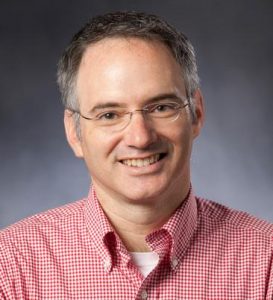 Billy Pizer holds joint appointments as professor in the Sanford School of Public Policy and as a faculty fellow in the Nicholas Institute for Environmental Policy Solutions. His current research examines how public policies to promote clean energy can effectively leverage private sector investments, how environmental regulation and climate policy can affect production costs and competitiveness, and how the design of market-based environmental policies can be improved. From 2008 until 2011, he was Deputy Assistant Secretary for Environment and Energy at the U.S. Department of the Treasury, overseeing Treasury’s role in the domestic and international environment and energy agenda of the United States. Prior to that, he was a researcher at Resources for the Future for more than a decade. He has written more than two dozen peer-reviewed publications, books, and articles, and holds a Ph.D. and Master’s degree in economics from Harvard University and Bachelor’s degree in physics from the University of North Carolina at Chapel Hill.
Billy Pizer holds joint appointments as professor in the Sanford School of Public Policy and as a faculty fellow in the Nicholas Institute for Environmental Policy Solutions. His current research examines how public policies to promote clean energy can effectively leverage private sector investments, how environmental regulation and climate policy can affect production costs and competitiveness, and how the design of market-based environmental policies can be improved. From 2008 until 2011, he was Deputy Assistant Secretary for Environment and Energy at the U.S. Department of the Treasury, overseeing Treasury’s role in the domestic and international environment and energy agenda of the United States. Prior to that, he was a researcher at Resources for the Future for more than a decade. He has written more than two dozen peer-reviewed publications, books, and articles, and holds a Ph.D. and Master’s degree in economics from Harvard University and Bachelor’s degree in physics from the University of North Carolina at Chapel Hill.
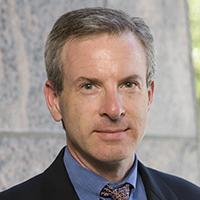 Jonathan B. Wiener is the William R. and Thomas L. Perkins Professor of Law at Duke Law School, Professor of Environmental Policy at the Nicholas School of the Environment, and Professor of Public Policy at the Sanford School of Public Policy, at Duke University. Since 2015 he is the Co-Director of the Rethinking Regulation program at Duke. From 2000-05 he was the founding Faculty Director of the Duke Center for Environmental Solutions, now expanded into the Nicholas Institute for Environmental Policy Solutions, of which he served as chair of the faculty advisory committee from 2007-10.
Jonathan B. Wiener is the William R. and Thomas L. Perkins Professor of Law at Duke Law School, Professor of Environmental Policy at the Nicholas School of the Environment, and Professor of Public Policy at the Sanford School of Public Policy, at Duke University. Since 2015 he is the Co-Director of the Rethinking Regulation program at Duke. From 2000-05 he was the founding Faculty Director of the Duke Center for Environmental Solutions, now expanded into the Nicholas Institute for Environmental Policy Solutions, of which he served as chair of the faculty advisory committee from 2007-10.
Since 2002 he has been a University Fellow of Resources for the Future (RFF), the environmental economics think tank. He is a member of the Scientific and Technical Council of the International Risk Governance Council (IRGC), and of the Chaire Economie du Climat (CEC). He was a chapter lead author for the Intergovernmental Panel on Climate Change (IPCC), 5th Assessment Report, Working Group III, Chapter 13, “International Cooperation: Agreements and Institutions” (2014). In 2015 he was a member of the Special Policy Study team on “Environmental Risk Management” for the China Council for International Cooperation on Environment and Development (CCICED). In 2014-16 he was a member of the World Economic Forum’s Global Agenda Council on Climate Change.
Before coming to Duke, he worked on U.S. and international environmental policy at the White House Council of Economic Advisers, at the White House Office of Science and Technology Policy, and at the US Department of Justice, serving in both the first Bush and Clinton administrations. He helped negotiate the Framework Convention on Climate Change, and attended the Rio Earth Summit in 1992. In 1993 he helped draft Executive Order 12866 on Regulatory Review. He received his A.B. in economics (1984) and J.D. (1987) from Harvard University.